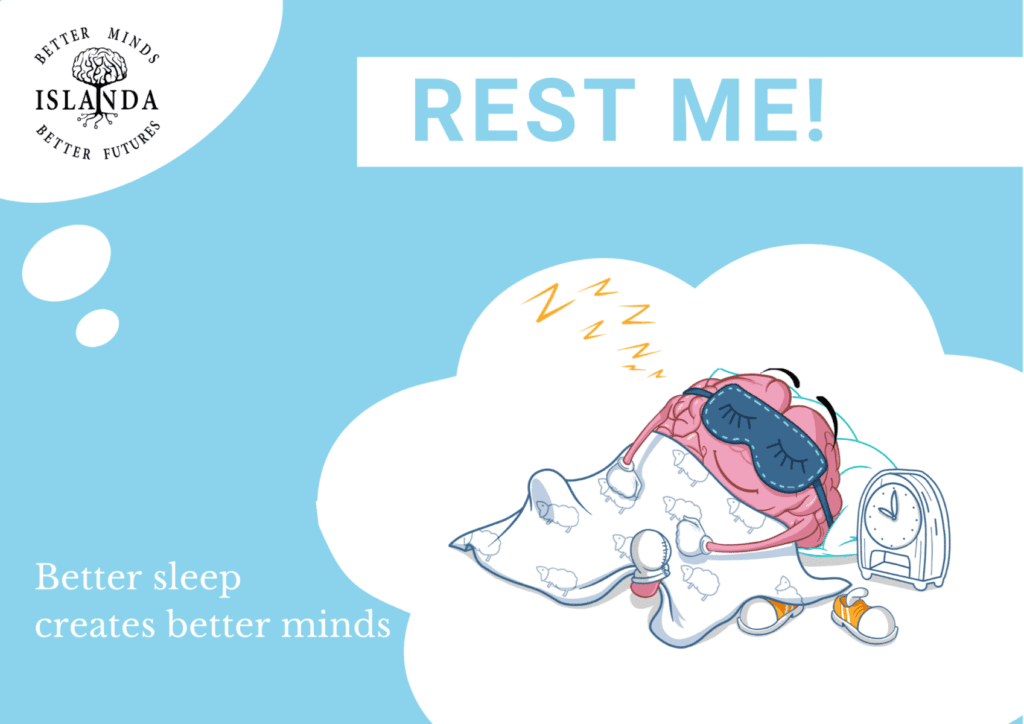“Rest is not a luxury you earn when you are finished with creative work. It’s a discipline you cultivate to make you more creative.” John Spencer
Good quality sleep is vital for our physical and mental health, wellbeing and performance. Poor sleep can contribute to health conditions, depression, weight gain, decreased sex drive, poor decision making, accidents and when we are tired we are more likely to be more emotionally reactive.
Whilst this isn’t news to most of us, why is it that sleep is often the first thing we sacrifice when we are busy, with other activities being prioritised over our sleep?
Indeed many people live by Robert De Niro’s quote “You’ll have time to rest when you‘re dead”.
Whilst sleep might feel unproductive or a waste of time, investing time and effort in getting good restorative sleep could reap enormous rewards in terms of increased creativity and productivity.
Find out what works best and establish good habits
For many of us working from home, with more flexibility in our routines, now is a great time to experiment and identify the hacks that work best for us. Whilst there is no ‘one size fits all’ approach to sleep, there are a few techniques that are tried, tested and recommended. There may be one or two that make a difference and even a small difference can have an enormous impact.
Create a routine Our brains love routines as they use less mental energy and the familiarity of routine provides a level of psychological safety leading to a calmer state of mind, more conducive to sleep. Schedule regular times for eating, sleeping and exercise. I love the book Power of When by Dr Michael Breus that gives insights on the best times to do everything depending on your chronotype. Take the quiz at https://thepowerofwhenquiz.com to identify whether you are a BEAR, WOLF, DOLPHIN or LION. There is a science behind our sleep routines and living in tune with your chronotype’s schedule can have an enormous impact on your mental state and performance
Manage stimulation Mental and physical stimulation hampers sleep. Manage the use of electronics, mental work and exercise in the evening. Whilst it can be very tempting to catch up on emails and strategic thinking during the quiet time of the evening when the kids are in bed etc this may lead to stimulating our cognitive thinking making it more difficult to fall asleep when we have a mind full of thoughts
Moderate stimulants Alcohol, caffeine and sugar are another form of stimulation. Alcohol can make us feel more ‘sleepy’ and help us drop off to sleep but it impairs the quality of sleep and can lead to wake periods during the night. Caffeine takes a long time to be processed in our bodies and even if you feel that you sleep OK after drinking caffeine, it will decrease the amount of deep sleep, a phase of sleep linked to physical recuperation, memory and immunity
Manage light conditions Light suppresses the production of sleep-inducing melatonin. Electronic screens emit blue wavelength light, a light that naturally diminishes when the sun goes down, and indoor lighting can cause problems too. Pay attention to light sources at bedtime to ensure sleep is induced at the start of the night and if possible ensure good blackout curtains or blinds to manage when you are exposed to light in the morning
Practise relaxation As well as managing sources of stimulation consider ways to reduce stress and anxiety and promote a calmer emotional state. Practising mindfulness or meditation regularly has been found to improve the quality of sleep as well as improving insomnia. By focussing attention on the present moment, where we are psychologically safe, and letting go of thoughts about past experiences or perceived future outcomes our brains are able to adopt a calmer, more sleep-appropriate state.
If you feel mindfulness isn’t for you, start by getting into the habit of ‘braindumping’ everything that’s on your mind onto a piece of paper or notebook and consciously putting it to one side to be picked up in the morning. Create a dialogue with your inner chatter – acknowledge any emotions that you are feeling, thank them for their wisdom and tell yourself that you will take action in the morning. This might feel ‘futile’ but it engages the bodymind connection and sleep is a physical state which is often impaired by a poor mental state.
Getting good quality and deep restorative sleep is possibly the best ‘life’ habit that you can establish. It will improve your physical and mental health and wellbeing and improve your immunity, currently our best defence against COVID-19. And when you are in optimum physical and mental health, you are more able to perform at your best, have better relationships, make better decisions and enjoy life. Use this period of change to experiment and establish good habits. Reduce stimulation, increase relaxation and create routines that suits your personal biological clock.
